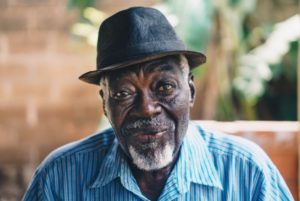Combating Racism – Honoring Black History Month 2022 – Part 4
For the past three weeks, I have shared the names and accomplishments of Black writers, photographers, military heroes, and civil rights activists to honor their legacies during Black History Month. The study of Black history has become a politicized subject since I began my newsletters in June 2020. Rather than being segregated from American history, I consider it the essence of American history. Publishing my newsletters has been a small step in honoring Black history every month.
Below are some of the ways that you can support Black Americans and reverse some of the effects of racial discrimination that have plagued our nation for centuries.
Support a Black business.
Here you will find a collection of apps, marketplaces, and directories to help you find Black businesses to support, no matter what you’re shopping for.
Visit a Black History or Civil Rights Museum in your local area.
Across the United States, the cultural history and heritage of Black and African Americans is preserved in museums, through historical societies, and by tireless local activists and volunteers. A state-by-state list of locations where you can find Black history museums and/or delve into African American history in your local area can be found here. Many museums have recently taken their programming virtual, expanding access for everyone.
Donate to an HBCU.
Historically Black Colleges and Universities (HBCUs) were established during a time when Black Americans were denied admission to traditionally White institutions. Today, HBCUs remain necessary places for furthering equal educational opportunities and advancing Black achievement, an impact that reverberates across our country. There are 107 colleges in the United States that are identified by the US Department of Education as Historically Black Colleges and Universities (HBCUs). Of those 107, three are currently closed. You can find a list of these colleges and universities in alphabetical order read this in-depth interview with Howard University president, Dr. Wayne A. I. Frederick.
Donate to an organization supporting civil rights.
You can find a list of highly-rated charities that defend civil rights, protect legal rights, and promote tolerance and understanding here.
Join an organization.
In addition to donating to the organizations above, consider joining. An additional list of Black organizations is included in my July 12, 2020 newsletter.
Sign up to receive news from a Black organization.
For the organizations and charities that have meaning to you in the above lists, consider signing up to receive their newsletters.

Host a Black film marathon (or watch by yourself).
You can find Black movies that are streaming on Netflix here. To find links to movies by Black filmmakers, click here. If you enjoy watching romance movies, you can find links to Black romance movies here. And for some of the classic Black films, click here.
Read a book by a Black author.
Reading books by Black authors is one of the best ways to honor some of the community’s most illuminating stories. Thanks to the work of Black authors, the world can better understand both the struggles and triumphs of Black people in America. From wise artists like Maya Angelou to new voices like Marlon James and Kiley Reid, and leaders like the Obamas, Oprah has gathered some of the all time best books by Black authors.
For a list of books by Black authors recommended by various TED talk speakers, click here.
And Hallmark has suggested 20 Powerful Black History Books to add to your reading list. The list of these books can be found here.
Sign up to mentor a Black child in your community.
To mentor a child in foster care, you can reach out to Aid to Adoption of Special Kids (AASK) or to The National Mentoring Resource Center, or to The Children’s Village. To become involved with the African American Big Sisters and Big Brothers organization, you can click here to learn more.
Consider joining the National CARES Mentoring Movement. The organization has affiliates across the country and connects volunteers to places where they are most urgently needed: in schools, local youth-serving organizations, and detention centers and reentry programs located in communities that are disrupted by poverty. You can find more information about this organization here.
Spend time with a Black elder in your community.

Like the general population of older adults, Black older adults are living longer. Unlike their White counterparts, however, Black older adults experience significant health disparities, including lower life expectancies and an increased risk of chronic health conditions such as hypertension, diabetes, dementia, stroke, and cancer. In recent years there has been a surge of interest in the impact of racial discrimination on the quality of life of Black Americans, sparked in part by #BlackLivesMatter. Black older adults have also experienced cumulative race-related stressors that negatively impact their physical and mental health. You can assist a Black elder who may have limited access to community resources (e.g., grocery stores, pharmacies, culturally competent health and aging service providers, transportation, housing, etc.)—situations that contribute to race-related stress and create barriers to achieving healthy and productive aging. Or simply sit and have a conversation with an elder who may be lonely for company.
Learn about an unsung hero of Black history.
To learn about the numerous unsung Black American heroes and heroines, most of whom lived in the 19th century, check out my December 13, 2020 and December 20, 2020 newsletters. For a list of children’s books that celebrate Black heroes click here or here. For a list of ten must-read biographies of influential Black Americans, click here.
Support a creative Black individual.
Seek out Black artists, poets, writers, designers, authors, dancers, musicians, actors, and others in the creative arts in your community. Introduce them to the children in your schools. Organize events in which they can showcase their talents. Invite them to appear at groups to which you belong. Donate to the groups to which they belong. Engaging with the creative arts help us to understand others’ cultures and enhances our awareness and respect of others.
Explore Black music.

Ever since 1977, when President Jimmy Carter declared each June as Black Music Month, June has been recognized as a time to commemorate and celebrate the many contributions that Black Americans have made to music in this country. Each U.S. president since Carter has upheld the tradition and in 2009, President Barack Obama changed the name to African-American Music Appreciation Month.
Even though this isn’t African-American Music Appreciation Month, Black History Month is also a perfect time to honor Black Americans whose music has brought us joy. You can find a list of 100 Black Americans who have shaped American music here.
Explore the history, arts and culture of the Black experience.
Our understanding of the history, arts, and culture of the Black experience can be enhanced through a Google Arts and Culture site that can be accessed here. This site explores Black creators; icons, moments and milestones in Black history; the history of civil rights in the U.S.; risk takers and history makers; museums that focus on the Black experience; iconic Black women (some of whom will be the focus of my newsletters during Women’s History Month next month); pioneers of pop culture; sports figures; and more.
Contribute an essay or blog to a Black media outlet.
Contribute to a Black newspaper (also known as the Black press or African-American newspapers). Samuel Cornish and John Brown Russwurm started the first Black periodical called Freedom’s Journal in 1827. During the antebellum South, other African-American newspapers sprang forth, such as The North Star founded in 1847 by Frederick Douglass. In the 21st century, newspapers of all sorts have shut down, merged, or shrunk in response to the dominance of the Internet. A list of African-American newspapers and media outlets can be found here on Wikipedia.
If you aren’t familiar with Black media outlets, this site can familiarize you with the ten most prominent.
Engage in healthy conversations about Black history on social media.

Use your social media outlets to open healthy conversations about Black history, Black events in your community, Black citizens who have performed acts of kindness, etc. You can teach others and become a voice for anti-racist sentiment.
Call out racism and prejudice in your community.
- Stand up in a county council or city council meeting.
- Write letters to the editor of your local newspaper.
- Refuse to listen to or partake in racist jokes or jokes that disparage any other group of people.
- Intervene safely against harassment.
Learn the lyrics to Lift Ev’ry Voice and Sing.
The song was written as a poem by James Weldon Johnson. In 1899 Johnson’s brother set the poem to music and the song was adopted by the NAACP as the Negro National Anthem. It is now considered the Black National Anthem. You can hear the song sung by Esther Williams here and read the words here.
~ ~ ~ ~ ~ ~ ~ ~ ~ ~ ~ ~ ~ ~ ~ ~ ~ ~ ~ ~ ~ ~ ~ ~ ~ ~ ~ ~ ~ ~
One of the best ways to celebrate and honor Black History Month is to cultivate your own ongoing curiosity and learning. Each time we study our past, we are better prepared to imagine the future we want to create. How will you honor Black history after Black History Month ends? Send me your responses. I look forward to hearing from you.